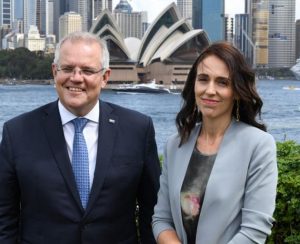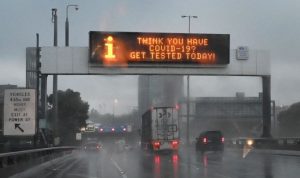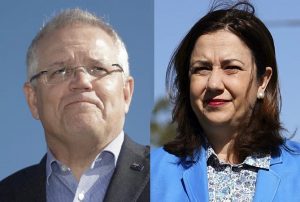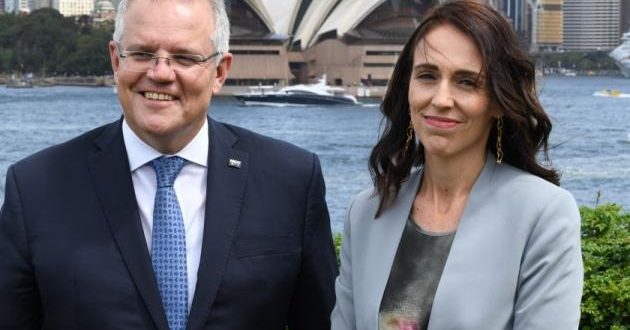 CANBERRA/ SYDNEY: Travellers should be free to cross all state borders from July under a new push by Prime Minister Scott Morrison to remove barriers he blames for costing jobs and putting tourism at risk.
CANBERRA/ SYDNEY: Travellers should be free to cross all state borders from July under a new push by Prime Minister Scott Morrison to remove barriers he blames for costing jobs and putting tourism at risk.
As tourism operators pleaded for certainty so families could book winter holidays, Morrison told Parliament he wanted state and territory leaders to commit to the July timetable “at the earliest possible opportunity” so customers knew where they stood.
The controls are a key sticking point in national cabinet ahead of the peak group’s next meeting this Friday, when Morrison is likely to push for swift removal of restrictions.
Queensland Premier Annastacia Palaszczuk has frustrated the industry by naming September as a potential date to end the state’s ban on interstate holidaymakers but signalled on Wednesday it could happen in July.
The frustration has also spread to New Zealand, where Deputy Prime Minister Winston Peters blamed “slow movers” in Australia for preventing a “travel bubble” operating across the Tasman Sea.
Morrison said the best way to help airlines including Qantas and Virgin, which is seeking investors after going into voluntary administration, was to scrap border controls.
 “If we’re concerned about Virgin employees then it is very important that we open up the domestic borders in this country,” he told Parliament.
“If we’re concerned about Virgin employees then it is very important that we open up the domestic borders in this country,” he told Parliament.
“This is about ensuring that our economies can open up.”
He said it was “not a partisan issue” and named Queensland, South Australia, Tasmania and Western Australia, all of which have restrictions on interstate travel.
Morrison said all states should act on the three-step timetable agreed by national cabinet weeks ago to complete the removal of restrictions in July.
“We look forward to that being completed in July, and I would be hoping that at the earliest possible opportunity, states will be able to indicate the date in July that that interstate travel will be open again to be able to give that certainty,” he said.
Mr Peters said the protocols for a travel bubble could be done “very, very quickly” but Australia’s federal structure was slowing things down.
“Let’s not restrain the movement between our two countries based on the slowest state in Australia,” he told Nine’s Today Show.
Tourism Minister Simon Birmingham agreed with Peters in a later interview on the ABC.
“We shouldn’t wait for the slowest state for us to open up travel with New Zealand,” Senator Birmingham said.
Ms Palaszczuk said the latest coronavirus results from NSW were “encouraging” and indicated July was the earliest date to open the border.
“Of course, where we can ease further restrictions, we will do so,” she said.
“I have made it absolutely clear that we will be looking at [border controls] at the end of the month as we head into stage three.
 “There is still some community transmission in Victoria; there is still some 360 active cases (in NSW but it is very encouraging that NSW is starting to record zero new cases.”
“There is still some community transmission in Victoria; there is still some 360 active cases (in NSW but it is very encouraging that NSW is starting to record zero new cases.”
The growing frustration comes after Australian Tourism Industry Council (ATIC) managing director Simon Westaway said there would not be any “real recovery” for the sector before the end of the year.
Queensland Deputy Premier Steven Miles said the government did not deny businesses were suffering as a direct result of the pandemic but would not admit state border closures were solely to blame.
“Restrictions on travel have clearly affected them, but those restrictions on travel existed at a number of levels,” he said.
“There is a restriction on people crossing our national borders from other countries. It is very difficult to differentiate which of those restrictions have caused what losses.”
Queensland One Nation senator Pauline Hanson said the state government’s denial that border closure had no impact on business viability was “rubbish” and justifications for it were disappearing
 Pressmediaofindia
Pressmediaofindia




